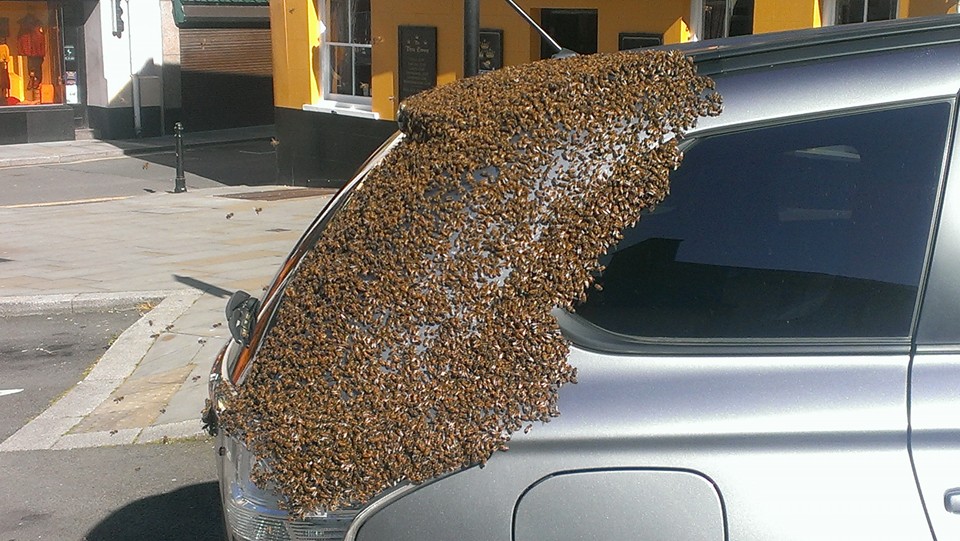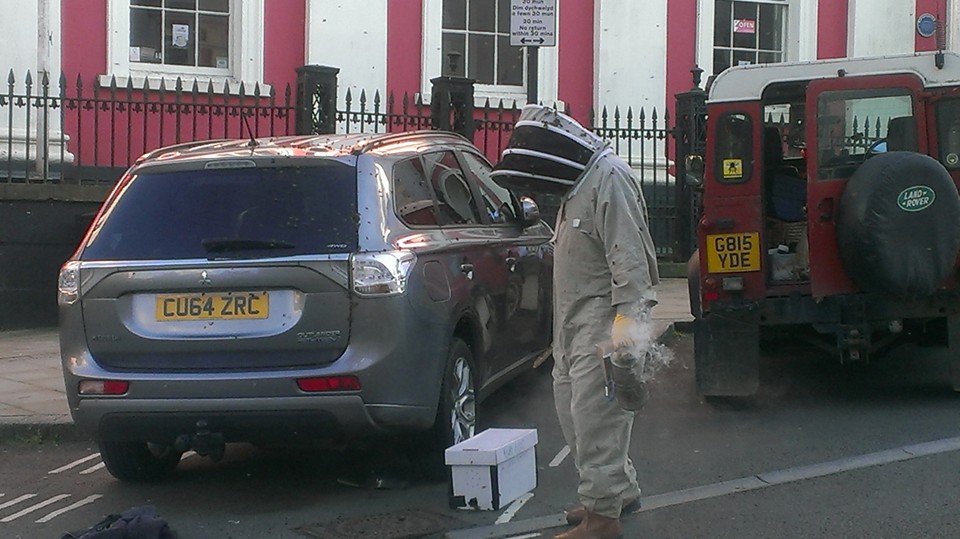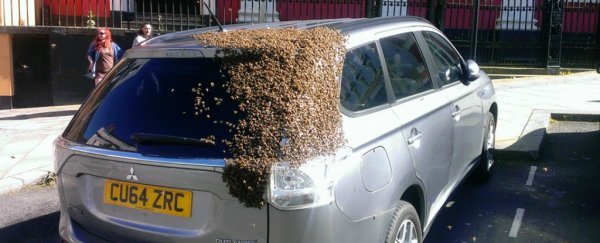If you've been online today, you might have heard the news about the crazed swarm of bees that chased down a poor woman in a Mitsubishi Outlander for TWO DAYS, presumably because their queen was locked in her trunk.
While it's probably the most terrifying thing that could happen during your morning commute, it's also a fascinating example of just how dedicated bees are to their queen - after all, they worker bees are able to sniff out the queen based on her unique pheromones.
The whole incident started on Sunday, when a 65-year-old Carol Howarth left a nature reserve and drove through Pembrokeshire town in the UK with around 20,000 bees chasing her car, as the BBC reports.
The "brown splodge" was spotted by national park ranger and bee enthusiast Tom Moses, who was worried someone would do something stupid to harm the bees, like "pour boiling water on them". Which is a valid concern, because every bee is precious these days.
 Tom Moses
Tom Moses
After calling the Prembrokeshire Beekepers' Association, Moses and two other beekeepers instead worked together to round up the swarm and get them safely into a box so they could take them back to the national park.
So far so good… until the next day Howarth woke up to find the swam back again.
The jury is still out on exactly what caused the strange swarming behaviour, but the leading idea is that the queen bee must have somehow been trapped in the car, or at least left her pheromones there.
"We think the queen had been attracted to something in the car, perhaps something sweet, and had got into a gap on the boot's wiper blade or perhaps the hinge," one of the beekeepers, Roger Burns told Metro.
So far, they've found no trace of her.
 Tom Moses
Tom Moses
"I have been beekeeping for 30 years and I have never seen a swarm do that," Burns told The Telegraph. "It is natural for them to follow the queen but it is a strange thing to see and quite surprising to have a car followed for two days. It was quite amusing."
Amusing probably isn't the word I'd use to describe being chased by stinging bees for more than 24 hours. But with the very survival of the insects under threat from a combination of pesticides, parasites, and human activity, we're just happy the bees made it out of the situation alive.
After all, the pollinators are responsible for the growth of more than 75 percent of our food, so if they want to chase us around once in a while, we're okay with that.
